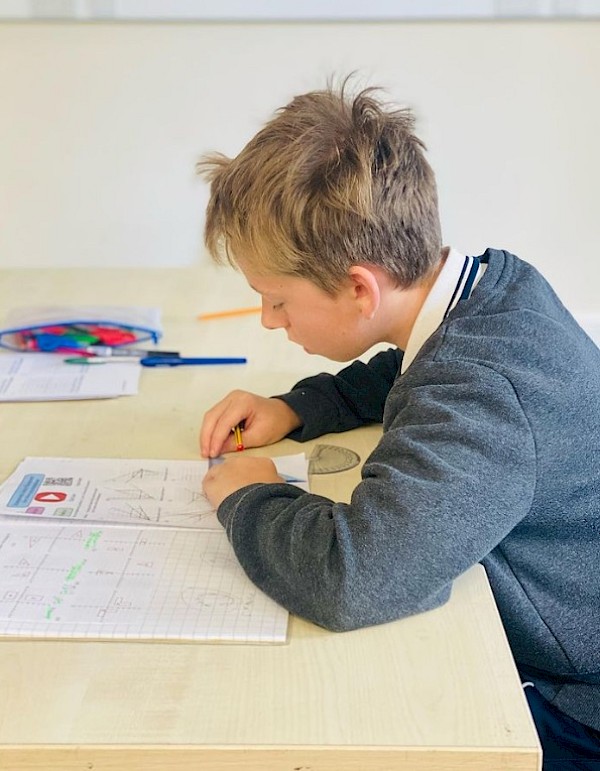Maths at Key Stage 3 focuses on addressing and closing the gaps in students’ learning whilst equipping them with a range of skills to develop their confidence and abilities in problem solving. The programme incorporates areas of both National Curriculum and Functional Skills standards to meet the needs of the individual, covering all aspects of number, algebra, data handling, geometry and ratio and proportion. Students are provided with further opportunities to develop their maths skill with focused intervention sessions. These sessions enable students to further develop their confidence and understanding through individualised tasks on a 1:1 basis.
At Key Stage 4 our focus is to equip students for future learning in mathematics and their every day life, teaching them how to think mathematically and apply these skills in various contexts. Students will follow a Functional Skills based programme which will aim to ensure they have at least basic numeracy and problem solving skills. They are then able to adapt these skills for use in everyday situations. Certification is available at Functional Skills Entry Level 1 through to Level 2.
Students will also follow a learning path for GCSE Maths, where applicable.
We are using the AQA GCSE Maths (8300) qualification. By the end of Key Stage Four, the Maths curriculum aims to ensure that all pupils:
- Enable students to become confident in their use of fundamental mathematical knowledge and skills.
- Can demonstrate their understanding by applying their knowledge and skills to solve simple mathematical problems or carry out simple tasks.
- Can demonstrate their ability in mathematical skills and their ability to apply these, through appropriate reasoning and decision making, to solve realistic problems of increasing complexity.
- Introduce students to new areas of life and work so that they are exposed to concepts and problems which, while not of immediate concern, may be of value in later life; and
- Enable students to develop an appreciation of the role played by mathematics in the world of work and in life generally.
